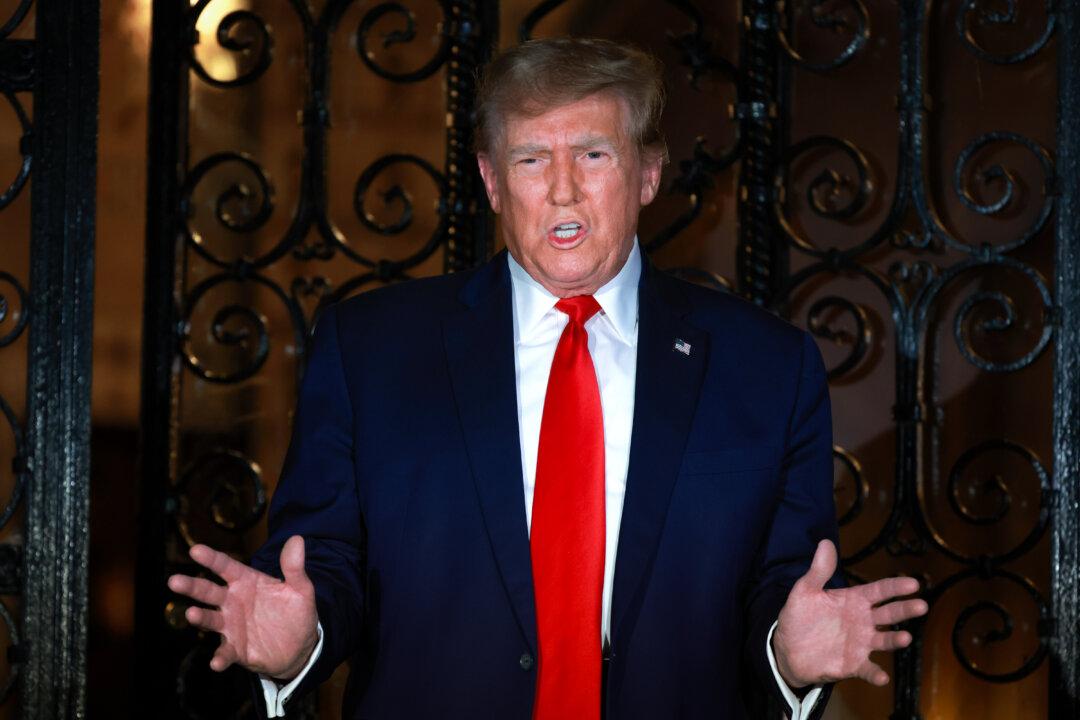Manhattan District Attorney Alvin Bragg’s office is seeking a gag order that would prevent former President Donald Trump from making “certain extrajudicial statements” as a case alleging that the 45th president falsified business documents is heading to trial.
Last week, the district attorney filed a notice for the upcoming gag order motion, arguing that President Trump “has a long history of making public and inflammatory remarks about the participants in various judicial proceedings against him.”





